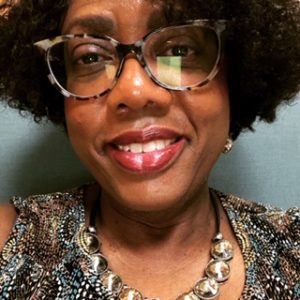We are proud to announce the launch of the CREATIVE CARE COUNCIL! LEARN MORE
We are proud to announce the launch of the CREATIVE CARE COUNCIL! LEARN MORE
By Elaine Shelly
It’s been another long, but fulfilling day thanks to my home care aides. It began with attending a Zoom meeting for writers, which is helping me recapture my love of creative writing and journalism after a several year hiatus from writing. I was grateful to find an online group I can meet with nearly every weekday, and it felt wonderful to return to my morning writing ritual. This is why I arranged for the morning aide to come after the Zoom meeting finished, and not during it.
Because I have advanced multiple sclerosis (MS), I have home care aides who come three times each day to assist me with personal care, meal preparation and light house cleaning. My most disabling MS symptoms are extreme fatigue and full body muscle spasms and tremors. I am able to stand, but I cannot walk and use a wheelchair full time. My inability to walk is not a big deal to me.
I was diagnosed with MS almost 30 years ago. A few months after I started experiencing symptoms, I could no longer continue my career as a journalist. Despite becoming disabled very quickly, it took many years before I learned how to access the home care assistance I need. I remember times when I would lie in bed, wondering how I would get myself to the bathroom or to the kitchen. The tremors I experience can be quite powerful;without adequate help, I would end up on the floor. When that happened, I would lie on the floor, shaking and wondering how I would get up? Sometimes friends would arrive to help. Sometimes they did not.
The aide services I currently receive aren’t self-directed services, meaning that an agency provides my aides and sets their schedules. The agency provides all-inclusive medical services for newly-minted seniors, like myself, and people who are well into their 80s, like my mother. The aides aren’t always sensitive to my specific needs, but I imagine it is challenging to provide services for such a wide range of ages, disabilities and cultures.
Since an agency provides the aides, I don’t have to recruit, interview or hire aides myself. If an aide calls in sick, there’s someone else to take her place. That’s important to me, as my energy level is an issue. I’ve used self-directed services, but it is challenging finding and keeping people. I was relieved when I found an agency to provide aides for me, but that has its disadvantages, too.
For example, I was assigned a different morning aide several days ago. She was scheduled to come during my daily writing group Zoom meeting. When I made the request to alter the schedule, however, her supervisor told me it wasn’t possible. I was taken aback by the thought that the schedule was more important than my wellbeing. Despite this, the morning aide and I worked out a schedule modification so I could attend the group this morning.
My frustrations with both self-directed and non-directed aide services do not outweigh my appreciation of both. These services allow me to remain in my home and avoid nursing home placement. Remaining in my home is particularly important as the pandemic has ravaged the health and lives of nursing home residents and employees.
And yet, funding for homecare services is at risk. The HEROES Act, a COVID-19 stimulus package proposed by Democratic House Representatives, included increased dollars for Medicaid home and community based services (HCBS). The Republican Senate countered with the HEALS Act, which doesn’t mention Medicaid at all.Stimulus negotiations disintegrated and the President issued an executive order. There’s no provision in the executive order for HBCS or Medicaid funding.
My lunch was hours late, but the evening aide came exactly on time. I exhaled deeply as I heard the evening aide close my door, leaving for the day. I cherish my alone time. Because of the support I receive, I can spend my quiet time listening to music or writing. I still grip onto my optimism that HCBS will get funding. I have to. It’s how I survive.
 Elaine Shelly is a journalist who lives in California.
Elaine Shelly is a journalist who lives in California.